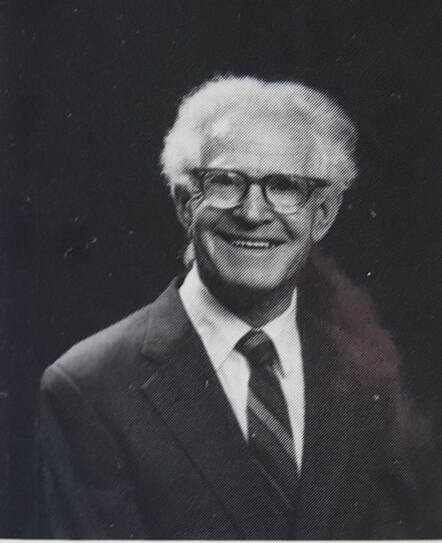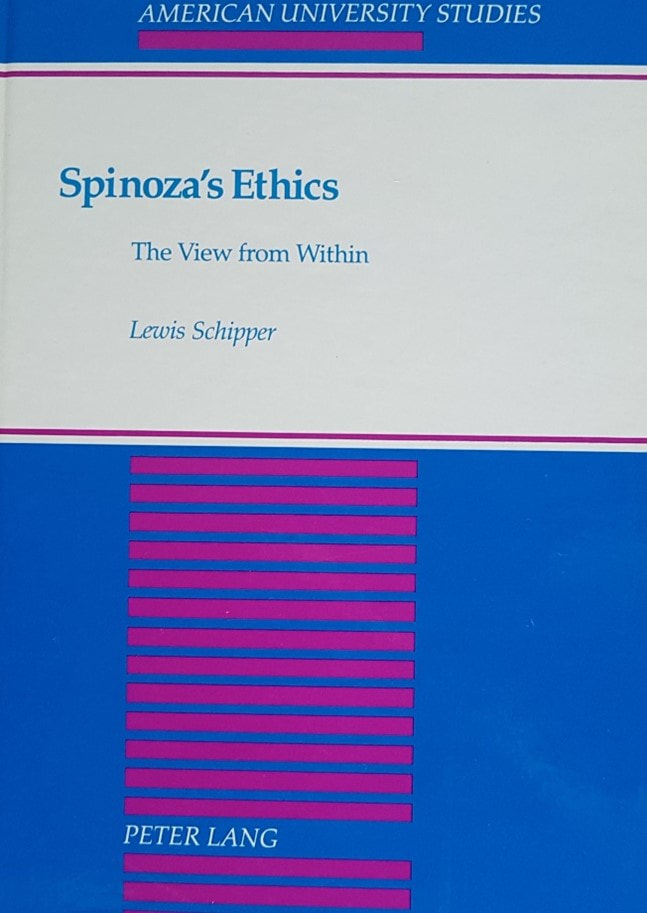- Home
-
Leven
-
Geschriften
- TIE >
- KV >
- PPCM
- TTP >
- TP >
- E >
- EP >
-
NS - Voorreeden
>
- NS_VR01
- NS_VR02
- NS_VR03
- NS_VR04
- NS_VR05
- NS_VR06
- NS_VR07
- NS_VR08
- NS_VR09
- NS_VR10
- NS_VR11
- NS_VR12
- NS_VR13
- NS_VR14
- NS_VR15
- NS_VR16
- NS_VR17
- NS_VR18
- NS_VR19
- NS_VR20
- NS_VR21
- NS_VR22
- NS_VR23
- NS_VR24
- NS_VR25
- NS_VR26
- NS_VR27
- NS_VR28
- NS_VR29
- NS_VR30
- NS_VR31
- NS_VR32
- NS_VR33
- NS_VR34
- NS_VR35
- NS_VR36
- NS_VR37
- NS_VR38
- NS_VR39
- NS_VR40
- NS_VR41
- NS_VR42
- NS_VR43
- Filosofie
- Blog
-
Lezen
-
Omtrent Spinoza
>
- Tolstoi en Spinoza
- Spinoza en schriftvervalsing
- Ieder zijn Spinoza
- Mijn avontuur met het Operaportret
- Over de twee Spinoza's
- Brevieren... in Spinoza
- Boeken die het leven veranderen?
- Spinoza-light
- De bronzen denker aan de Paviljoensgracht in den Haag
- Spinoza en de Schone Letteren
- Benjamin DeCasseres
- Theun de Vries over Spinoza
- De ethiek van Robert Misrahi in het spoor van Spinoza
- Spinoza's Lieux de mémoire
- De tekstdoolhof van Pierre Bayle
- Vermeer en Spinoza
- Gérard de Nerval, romantische naturalist
- Graaf Stanislaus von Dunin-Borkowski S.J., Spinoza-pionier
- Lord Bertrand Russell
- Harold Foster Hallett (1886-1966)
- Het dodenmasker van Spinoza...?
- De Wereldbibliotheek en Spinoza
- Spinoza en het humanisme
- In memoriam Robert Misrahi
- De niet genoemde
- Pierre Bayle: République des Lettres
- Ed Witten, de snaartheorie en Spinoza
- Hobbes-Leviathan
- Bibliografie en links
- De interlineaire Spinoza >
-
Omtrent Spinoza
>
- Bibliofilie
- Kalender/Contact
 Lewis Schipper, economist en filosoof (USA)
Lewis Schipper, economist en filosoof (USA)
Leerstoelfilosofen, wereldwijd, maken grote dode filosofen tot hun uitverkoren jachtterrein. Voor velen van hen is dat een gemakkelijkheidsoplossing, want ZELF met bouwstenen uit het verleden een authentieke filosofie ontwikkelen, zoals Spinoza hen dat voordeed, is een ander paar mouwen.
In de tweede helft van vorige eeuw werd over het leven en het oeuvre van Spinoza een vloed aan academische artikels en boeken geproduceerd die onze kennis merkelijk hebben verbeterd. Dat onderzoek van die beroepsfilosofen werd evenwel meer en meer toegespitst op analyse van deelaspecten van Spinoza’s filosofie, haar bronnen, haar terminologie, haar concepten, haar problemen, haar duisterheden e.a. meer, zodat de kernboodschap van Spinoza’s wereld-en levensbeschouwing allengs uit het oog werd verloren en vaak meer wordt verhuld dan onthuld.
Het resultaat van die specialistische trend in het onderzoek is dat er nu twee differente Spinoza’s in de Wereld rondwaren.
Ik had het op deze site al eens eerder over een ‘verticale Spinoza’ en een ‘horizontale Spinoza’: de eerste wordt ontwikkeld dóór de School en vóór de School via een verticale hyper-analyse van afzonderlijke elementen van Spinoza’s geschriften, pure Scholastiek zeg maar; de tweede ontstaat uit kritisch-historische studie van zijn leven en een lineair-horizontale en globale lectuur van zijn oeuvre, een onderzoeksmethode die leidt tot de echte, de ware Spinoza, een van de belangrijkste ethische leermeesters van de Westerse filosofie.
Met een gunstige wind belandt net op mijn leestafel een wat ouder maar erg bijzonder Spinoza-boek: Spinoza’s Ethics. The View from within, New York, 1993. Het is van de hand van een Amerikaans Spinoza-interpreet, Lewis Schipper, geschoold in economie én filosofie. Zowat dertig jaar geleden wees die auteur in zijn slothoofdstuk (The beauty of Spinoza) ook al op de beperkingen van een al te gespecialiseerd Spinoza-onderzoek:
‘Just like the flower loses its beauty when it is taken apart, so does intuitive truth lose its beauty when it is subjected to one-sided and narrow scholarly analysis. We remember what Spinoza said about “mere” lifeless scholarship: “my purpose is to explain, not the meaning of words, but the nature of things”. Spinoza is not arguing against scholarship per se. He is arguing against exaggerated and one-sided scholarship that often seeks truth in the purely linguistic analysis rather than in the nature of things. Through its complicated use of language, it often tends to obscure the truth, rather than to reveal it. This is true with respect to the higher level, open-ended, intuitive truth. Such truth cannot be scrutinized and subjected to surgical analysis of language. This truth is too rich and too inclusive. It is therefore not susceptible to be completely contained in language. The possibilities of insight and interpretation are too numerous. This is why Spinoza should be read for the deep insights that it provides to the reader. Such insight is to be adapted to the individual’s state of mind, as well as to the person’s background, and culture.
(…)
Unfortunately, narrow analytic and academic scholarship does not leave room for the grasp of the whole of life. Analytic scholarship emphasizes functionality and consistency, often at the expense of the living person.
(…)
In order for the reader to benefit from Spinoza in a personal way, it is necessary to leave room for a free adaptation of Spinoza’s ideas to our individual existence. It is like making it possible for us to communicate with Spinoza directly and to share with him our thoughts and problems. That is essentially what is meant by a poetic reading of Spinoza.’
Wijze en mooie woorden. En de moraal van ’t verhaal: zoals onze minuscule maan, de gigantische zon soms geheel of gedeeltelijk verduistert, zo verduisteren kleine beroepsfilosofen vaak met hyper-analytische studies het licht en de gloed van filosofische genieën.
19.12.2022
W. Schuermans
In de tweede helft van vorige eeuw werd over het leven en het oeuvre van Spinoza een vloed aan academische artikels en boeken geproduceerd die onze kennis merkelijk hebben verbeterd. Dat onderzoek van die beroepsfilosofen werd evenwel meer en meer toegespitst op analyse van deelaspecten van Spinoza’s filosofie, haar bronnen, haar terminologie, haar concepten, haar problemen, haar duisterheden e.a. meer, zodat de kernboodschap van Spinoza’s wereld-en levensbeschouwing allengs uit het oog werd verloren en vaak meer wordt verhuld dan onthuld.
Het resultaat van die specialistische trend in het onderzoek is dat er nu twee differente Spinoza’s in de Wereld rondwaren.
Ik had het op deze site al eens eerder over een ‘verticale Spinoza’ en een ‘horizontale Spinoza’: de eerste wordt ontwikkeld dóór de School en vóór de School via een verticale hyper-analyse van afzonderlijke elementen van Spinoza’s geschriften, pure Scholastiek zeg maar; de tweede ontstaat uit kritisch-historische studie van zijn leven en een lineair-horizontale en globale lectuur van zijn oeuvre, een onderzoeksmethode die leidt tot de echte, de ware Spinoza, een van de belangrijkste ethische leermeesters van de Westerse filosofie.
Met een gunstige wind belandt net op mijn leestafel een wat ouder maar erg bijzonder Spinoza-boek: Spinoza’s Ethics. The View from within, New York, 1993. Het is van de hand van een Amerikaans Spinoza-interpreet, Lewis Schipper, geschoold in economie én filosofie. Zowat dertig jaar geleden wees die auteur in zijn slothoofdstuk (The beauty of Spinoza) ook al op de beperkingen van een al te gespecialiseerd Spinoza-onderzoek:
‘Just like the flower loses its beauty when it is taken apart, so does intuitive truth lose its beauty when it is subjected to one-sided and narrow scholarly analysis. We remember what Spinoza said about “mere” lifeless scholarship: “my purpose is to explain, not the meaning of words, but the nature of things”. Spinoza is not arguing against scholarship per se. He is arguing against exaggerated and one-sided scholarship that often seeks truth in the purely linguistic analysis rather than in the nature of things. Through its complicated use of language, it often tends to obscure the truth, rather than to reveal it. This is true with respect to the higher level, open-ended, intuitive truth. Such truth cannot be scrutinized and subjected to surgical analysis of language. This truth is too rich and too inclusive. It is therefore not susceptible to be completely contained in language. The possibilities of insight and interpretation are too numerous. This is why Spinoza should be read for the deep insights that it provides to the reader. Such insight is to be adapted to the individual’s state of mind, as well as to the person’s background, and culture.
(…)
Unfortunately, narrow analytic and academic scholarship does not leave room for the grasp of the whole of life. Analytic scholarship emphasizes functionality and consistency, often at the expense of the living person.
(…)
In order for the reader to benefit from Spinoza in a personal way, it is necessary to leave room for a free adaptation of Spinoza’s ideas to our individual existence. It is like making it possible for us to communicate with Spinoza directly and to share with him our thoughts and problems. That is essentially what is meant by a poetic reading of Spinoza.’
Wijze en mooie woorden. En de moraal van ’t verhaal: zoals onze minuscule maan, de gigantische zon soms geheel of gedeeltelijk verduistert, zo verduisteren kleine beroepsfilosofen vaak met hyper-analytische studies het licht en de gloed van filosofische genieën.
19.12.2022
W. Schuermans

